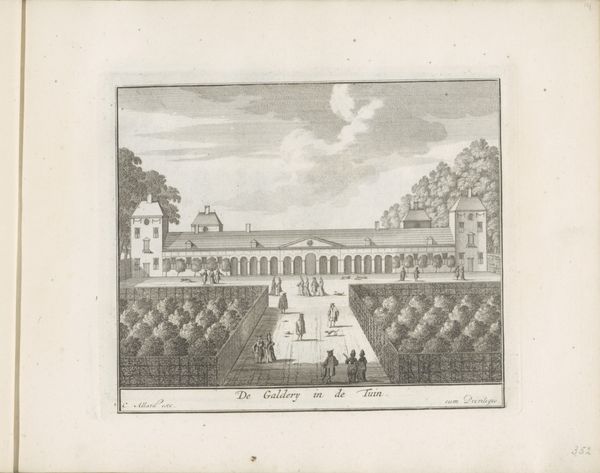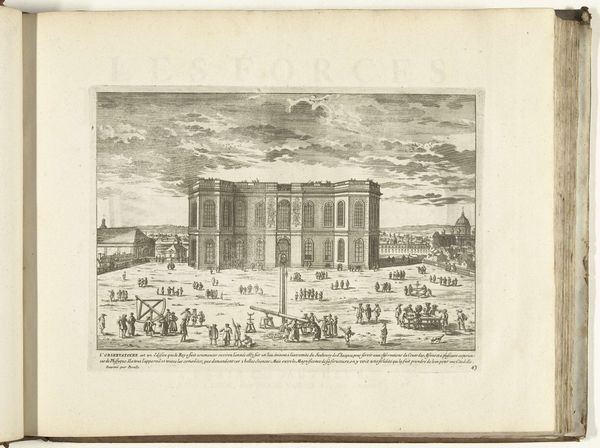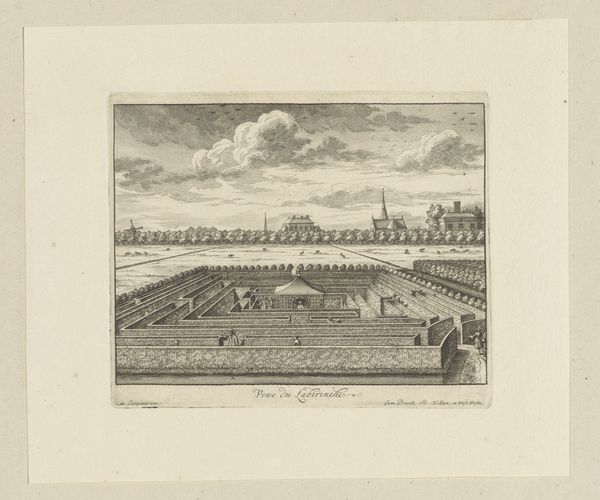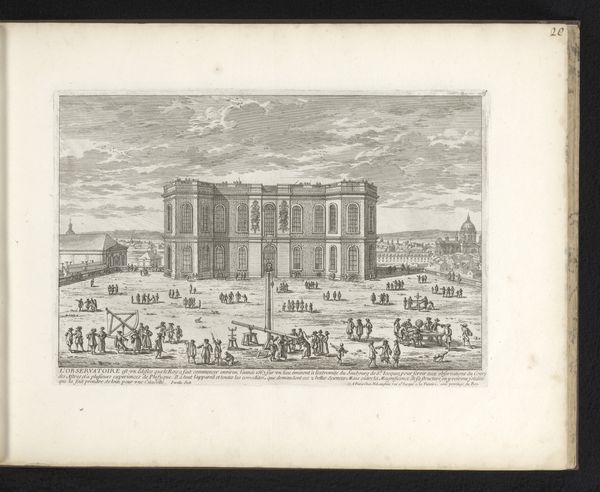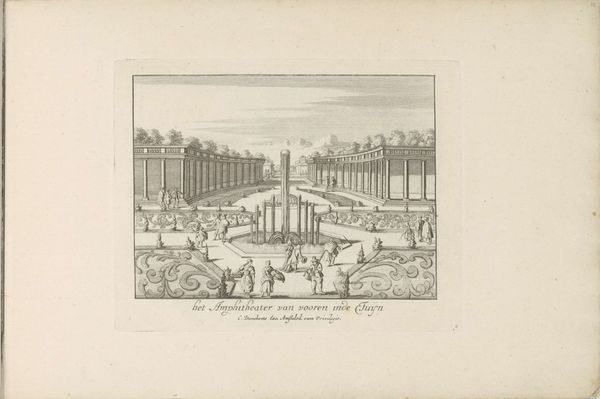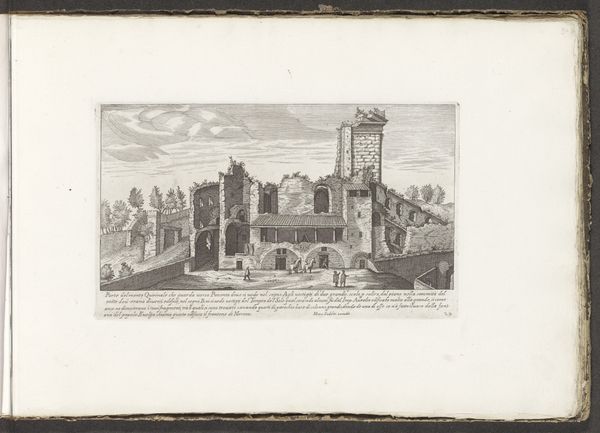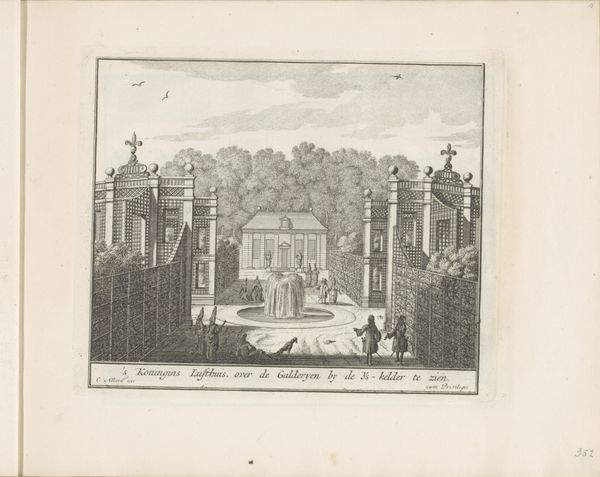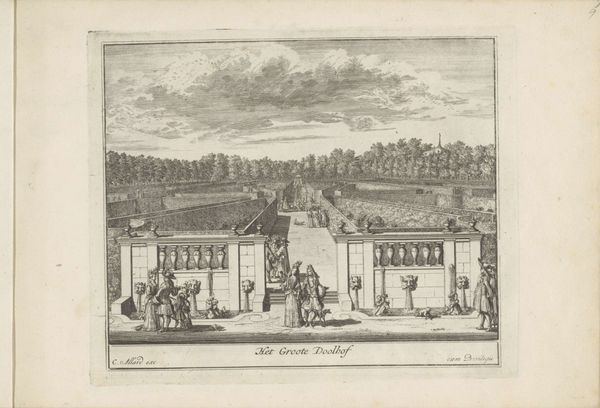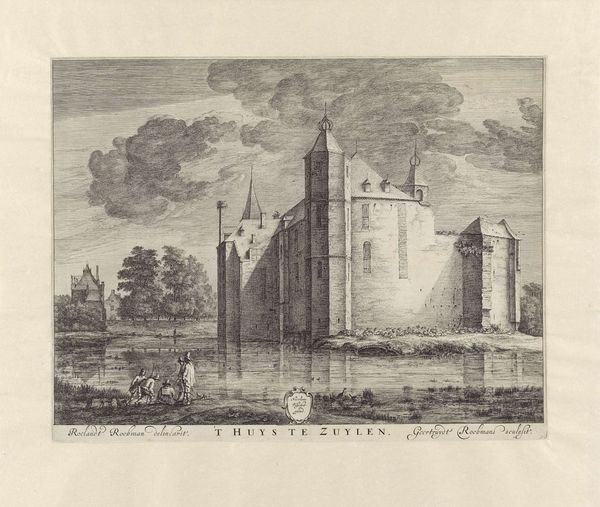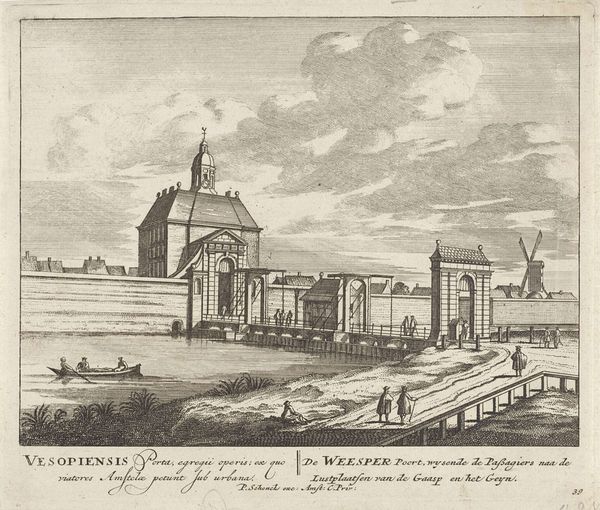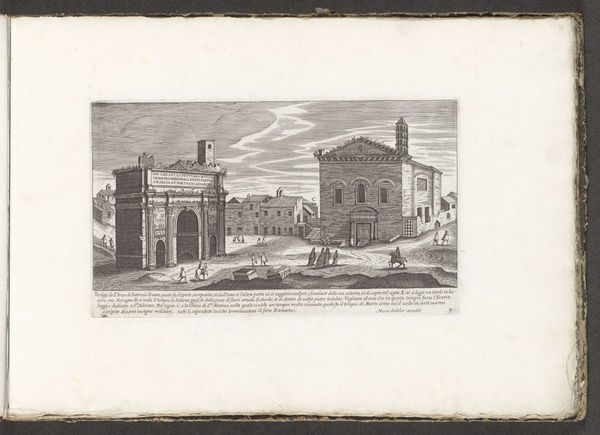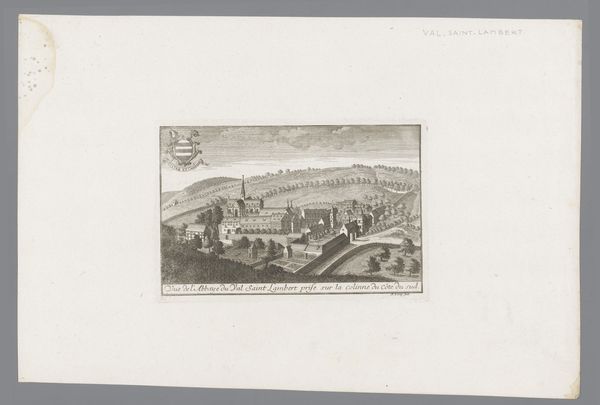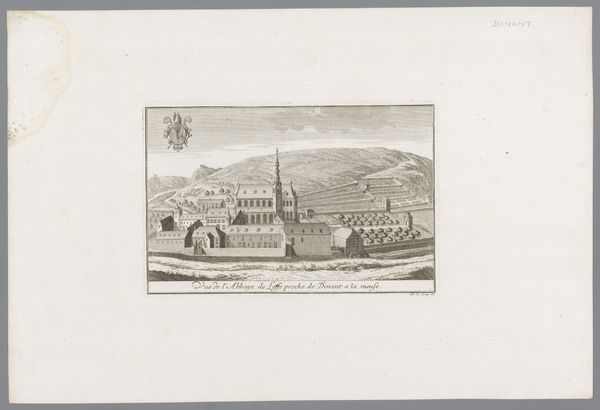
drawing, print, engraving
#
drawing
#
aged paper
#
light pencil work
#
baroque
#
dutch-golden-age
# print
#
pen sketch
#
old engraving style
#
sketch book
#
landscape
#
personal sketchbook
#
sketchwork
#
pen-ink sketch
#
line
#
pen work
#
sketchbook drawing
#
cityscape
#
engraving
Dimensions: height 141 mm, width 180 mm
Copyright: Rijks Museum: Open Domain
Editor: So this is "Klosbaan bij Paleis Het Loo" by Cornelis Danckerts II, dating back to between 1696 and 1718. It's an engraving. I find it fascinating how it depicts such a formal garden and palace in this almost sketch-like, simple style. What strikes you most about it? Curator: Well, immediately, the engraving speaks volumes about power and order in the late 17th and early 18th centuries. Do you notice how the Klosbaan – a type of bowling green – is meticulously arranged in relation to the Palace Het Loo? It’s a calculated display. Editor: Absolutely. It feels staged, almost like a theater set. All those figures seem so purposefully placed. Curator: Precisely! These gardens, and the activities held within them, were performative acts. Think about the symbols employed: The architecture of the Palace, with its straight lines, symmetry, and repeated windows and how they contrasts with the slightly looser rendering of nature around it, what could that say about how humans thought of the world around them? Editor: It could show man attempting to organize the natural world... maybe exerting control and dominance over nature? Curator: Indeed. Also consider the emotional landscape; a certain detachment, even stoicism, permeates the scene. This aesthetic, particularly popular within ruling circles, communicated something profound about their position and understanding of how to signal virtue and nobility. What feeling does the location elicit from you? Editor: I suppose, at first it feels kind of cold and calculated. Now though, with your insight, I better appreciate the cultural memory being built. A powerful ruling family that wants their surroundings to display order and structure to signal dominance to their subordinates. Thank you. Curator: My pleasure. It’s remarkable how symbols and visual language, consciously or unconsciously, shape our perception of historical narratives.
Comments
No comments
Be the first to comment and join the conversation on the ultimate creative platform.
